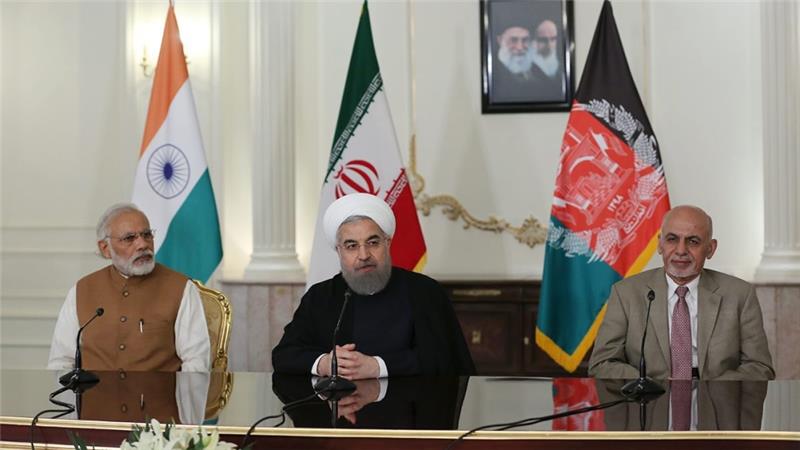India Afghanistan trade
March 21, 2017 | Expert Insights

Can the road block, Pakistan, be overcome?
India will soon hold talks with Afghanistan on ways to boost bilateral trade and investment. This move is also aimed at mounting pressure on Islamabad to facilitate trouble-free transit of goods from India to Afghanistan through Pakistan (Wagah-Attari route). In the absence of transit route through Pakistan, India depends on other countries, including Iran, to send goods to Afghanistan even though it increases time and costs for Indian exporters.
What is the Trade Stats Between India and Afghanistan?
India-Afghanistan goods trade had jumped nearly 22% to $834.5 million in 2015-16 with India’s exports to Afghanistan being $526.6 million and its imports from Afghanistan worth $307.9 million. During April-December 2016-17, the bilateral trade was to the tune of $590.1 million with India’s exports to Afghanistan being $377.2 million and imports from Afghanistan worth $212.9 million.
India’s main export items to Afghanistan are textiles, pharmaceuticals, tobacco, iron & steel and electrical machinery, while its imports from Afghanistan are fruits and nuts, gums and resins, coffee, tea and spices.
Can Good Go Through Pakistan?
As per the Afghanistan-Pakistan Transit Trade Agreement (APTTA), Afghanistan can use Pakistan’s territory for transit trade while Pakistan’s goods can move through Afghanistan to nations bordering Afghanistan. However, Islamabad has not agreed to allow using APTTA for goods to be transported from India to Afghanistan through Pakistan’s territory (via the Wagah-Attari route).
Assessment
India-Afghanistan Joint Working Group on Trade, Commerce and Investment’ meeting will discuss ways to make use of the United Nations TIR (Transports Internationaux Routiers or International Road Transport) Convention to boost trade between India and Afghanistan through Pakistan. The TIR Convention facilitates trade and international road transport by permitting customs-sealed vehicles and containers to transit nations without them being generally inspected at border crossings. Pakistan and Afghanistan are also ‘contracting parties’ to the TIR Convention.








Comments